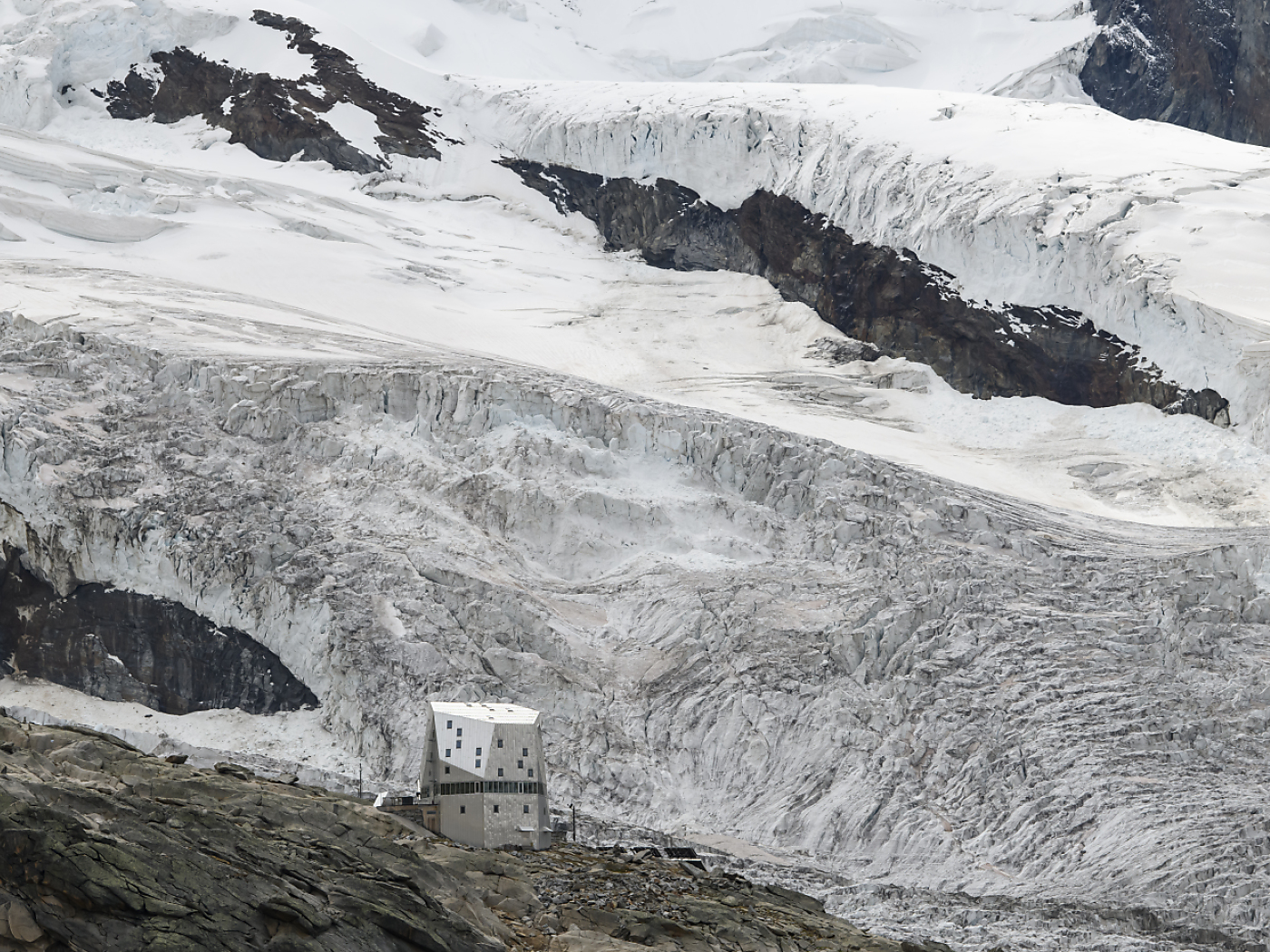
Glacier melt causes changes to Swiss-Italian border

Switzerland has adapted its borders with Italy and France. The changes with Italy are linked to melting glaciers, while those with France concern a new tram line and rivers in the Geneva region.
+ Get the most important news from Switzerland in your inbox
In canton Geneva the laying of tracks for the new cross-border tram line has resulted in small changes to the border between the communes of Perly-Certoux and Bardonnex. France and Switzerland will exchange equivalent areas of territory, the Federal Council said on Friday.
Two other modifications to the Franco-Swiss border are linked to renaturation work on the Hermance river and renaturation and embankment work on the Foron river.
Geneva shares a 103-kilometre border with France, 50 kilometres of which are in the middle of waterways.
Melting glaciers
The Swiss-Italian border is affected by climate change. Large stretches of the border are determined by glaciers and snowfields. As the glaciers melt, these natural elements change and redefine the national border.
+ Glacier melt causes dispute over Italian-Swiss border
The border has therefore been slightly modified in the region of the Tête Grise/Plateau Rosa, the Cabane Carrel and the Dos de Rollin. In May 2023, a joint Italian-Swiss commission agreed on a project that respects the interests of both parties.
The modifications are set out in agreements with Rome and Paris. As these are minor changes, the government is empowered to conclude these agreements on its own.
Translated from French by DeepL/sb
This news story has been written and carefully fact-checked by an external editorial team. At SWI swissinfo.ch we select the most relevant news for an international audience and use automatic translation tools such as DeepL to translate it into English. Providing you with automatically translated news gives us the time to write more in-depth articles.
If you want to know more about how we work, have a look here, if you want to learn more about how we use technology, click here, and if you have feedback on this news story please write to english@swissinfo.ch.

In compliance with the JTI standards
More: SWI swissinfo.ch certified by the Journalism Trust Initiative






























You can find an overview of ongoing debates with our journalists here . Please join us!
If you want to start a conversation about a topic raised in this article or want to report factual errors, email us at english@swissinfo.ch.